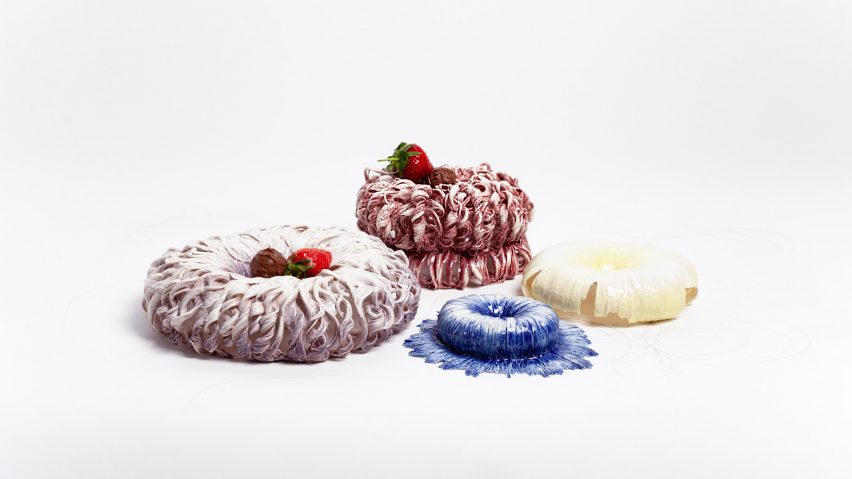
Céline Arnould makes commemorative porcelain bowls from the hair of loved ones
Swiss designer Céline Arnould has cast a series of ceramic vessels from the hair of her friends and family, as a contemporary take on the locks that Victorians used to keep as tokens of love or loss.
Arnould – who trained as a hairdresser and still cuts the hair of those closest to her – has been collecting the strands for almost a year to use as the basis for the 13 different bowls.
Three of them are dedicated to, and named after, one of these people and made using their hair, while all contain offcuts from a hairdresser that would otherwise have gone to waste.
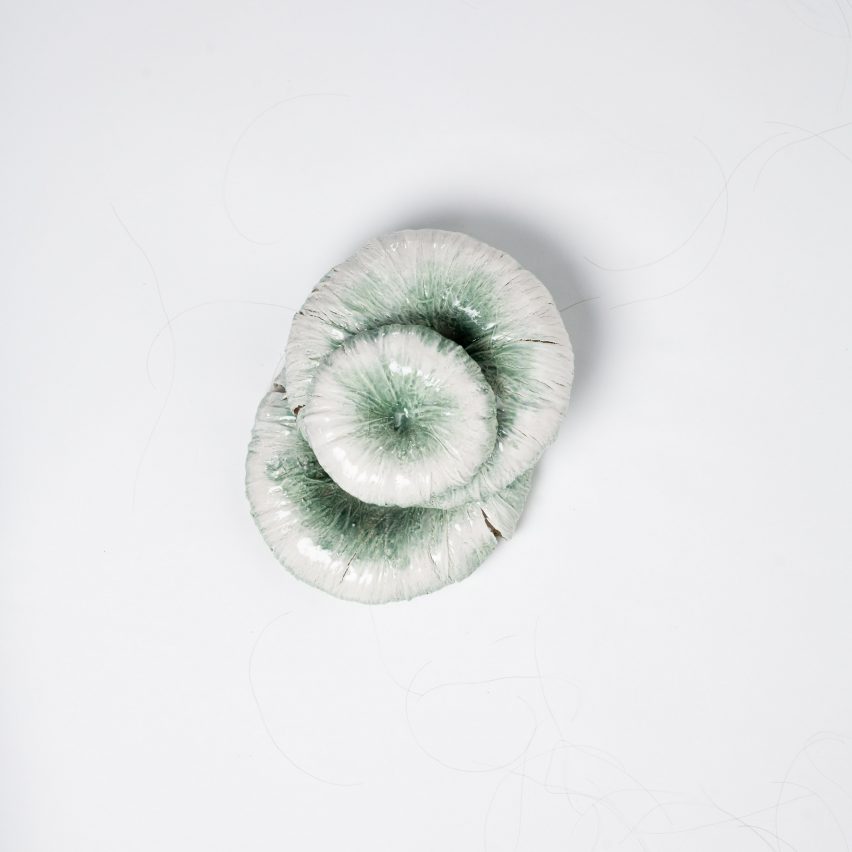
"The hair is representative of a person, so it is important to me to know where it comes from and that it is processed with much effort and care," she told Dezeen.
"Hair raises a lot of questions when used in an object. How is the identity of an object constructed? What if a human becomes a source of material? Due to this strong connection between humans and their hair, the objects trigger a lot of emotions."
For the Liaison collection, Arnould let the natural properties and textures of the material guide the objects' ultimate form.
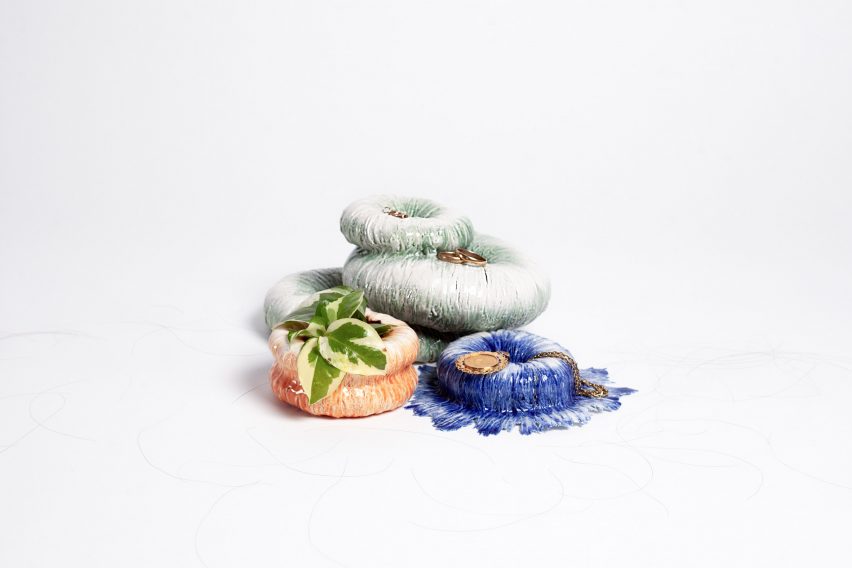
Draping the hair over inflatable, ring-shaped moulds gives it back its natural volume, for a result reminiscent of the tightly wound bun of a ballerina.
"For curls and braids, I just dip them into the porcelain mass and place them on to the mould to dry," explained the Zurich University of the Arts graduate.
"If I want to have an object with straight hair, I arrange it on the form first and then paint porcelain mass over it. I do all of this layer by layer so this part of the process can take four to six hours."
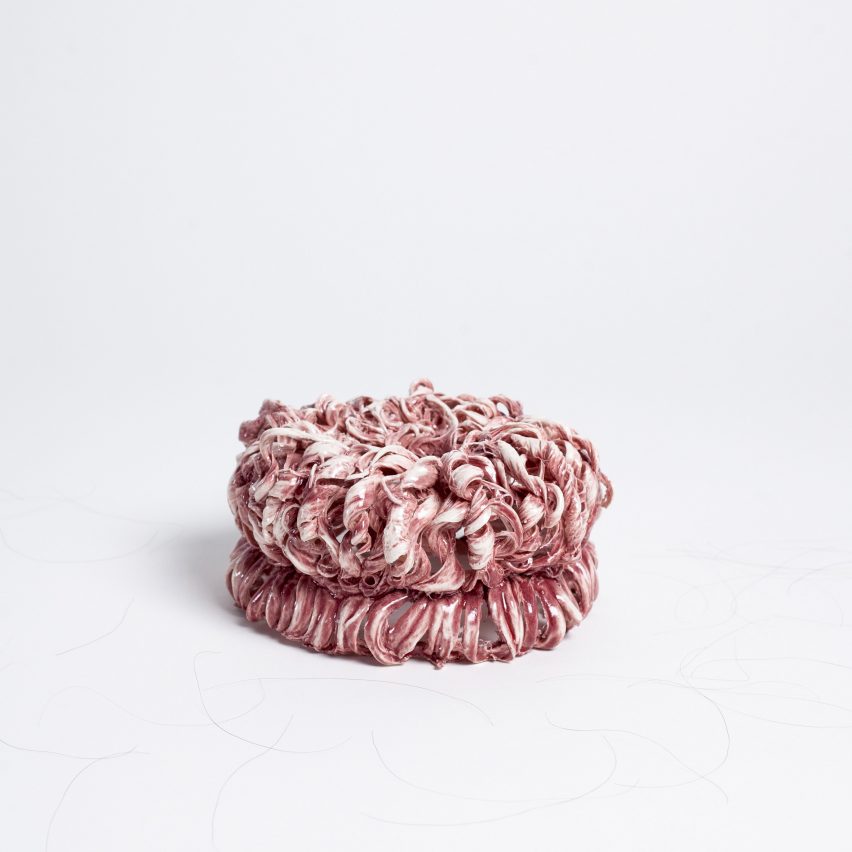
Beyond aesthetics, the hair serves the practical purpose of drawing moisture from the porcelain to help it set quicker, which is usually achieved by drying it in plaster moulds or plates.
It also acts as a sort of scaffold for the porcelain, helping the piece hold its form until the hair is burned away in the kiln leaving behind only impressions of what once was.
Finally, each bowl is tinted in soft, gradient colours like butter yellow or mint green.
"I apply a coloured glaze with an airbrush, mimicking how hair naturally reflects the sun," said Arnould. "Then I soften the colour transitions by taking away a small part of the glaze with a brush before applying the shiny transparent glaze."
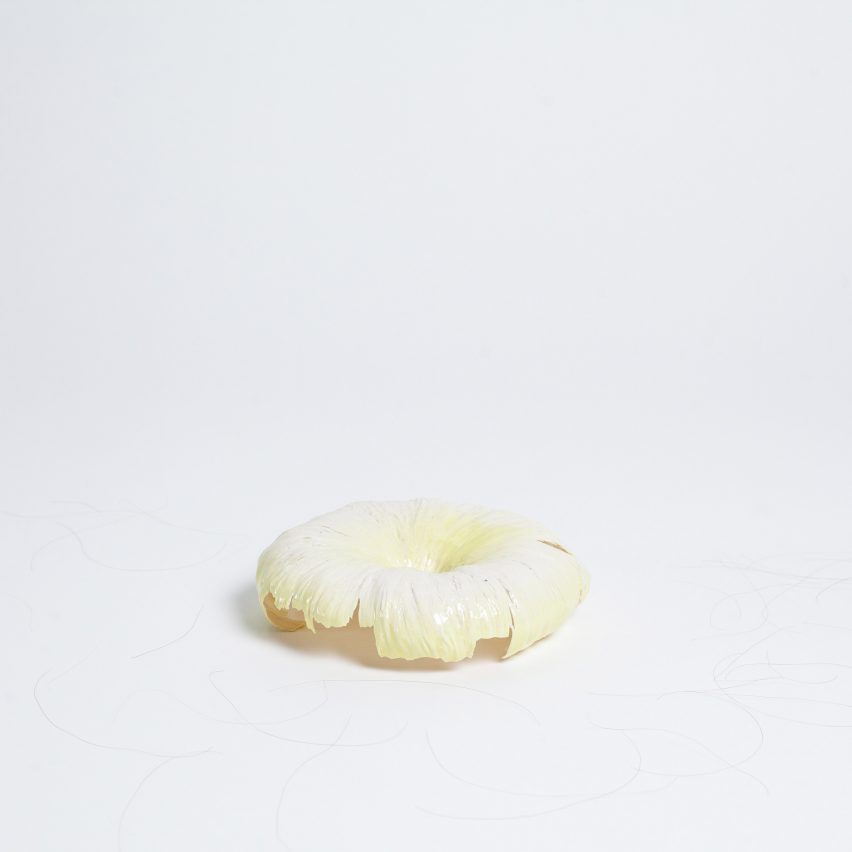
With Liaison, she hopes to raise questions around the contradictory, guttural reactions that hair can evoke.
"The hair can, if it is still connected to the head, stand for health and beauty, but once it is separated from the body you quickly associate it with disgust like when you see hair in a sink," she explained.
"That's why I decided to combine it with porcelain, a pore-free material that's associated with being fine and valuable, to contrast it with the rather disgusting connotations of cut hair."
Other projects that have explored hair as a material, include jewellery for cancer patients made from the strands they lost to chemotherapy and bricks in which it is combined with local waste.